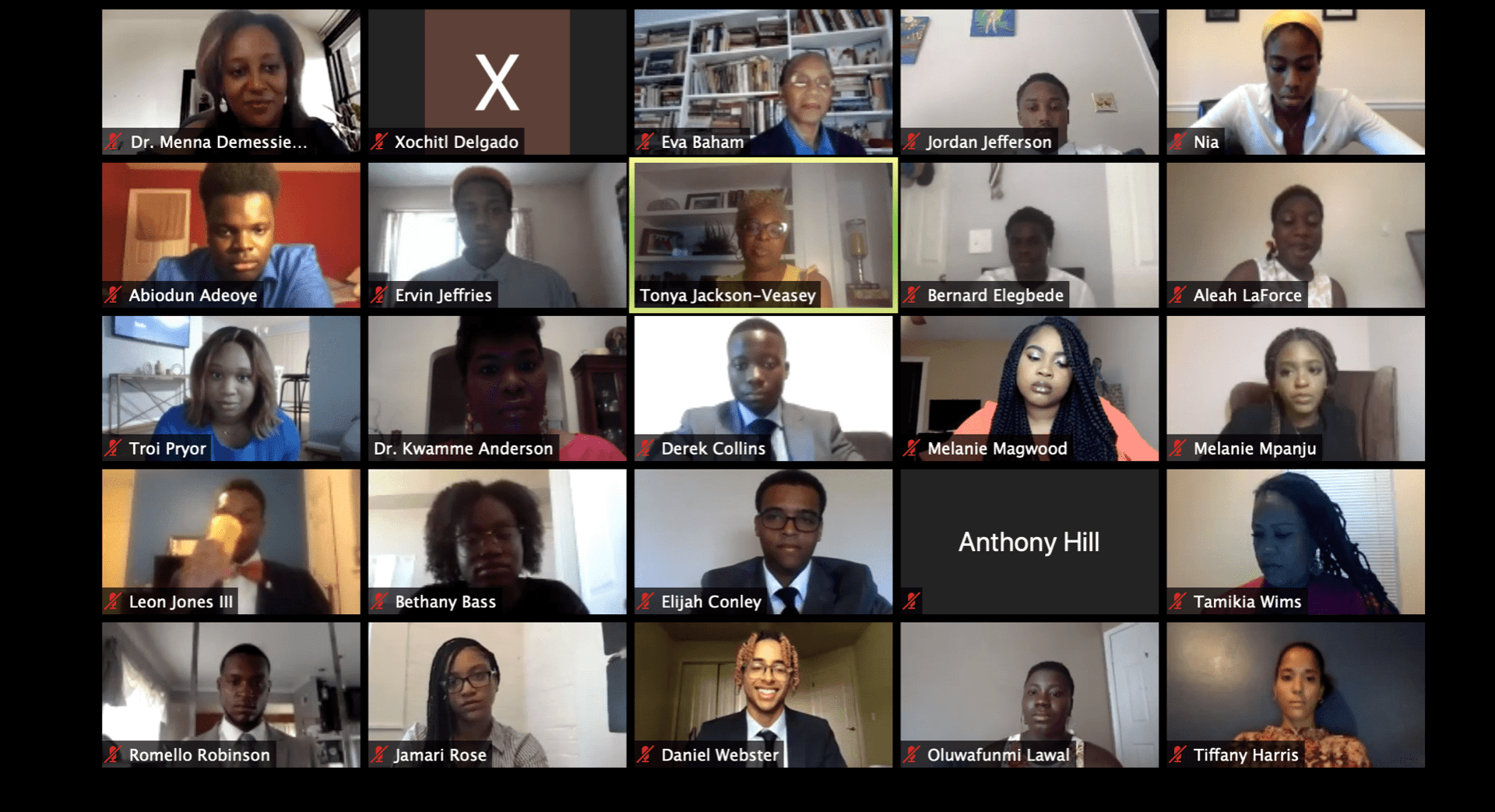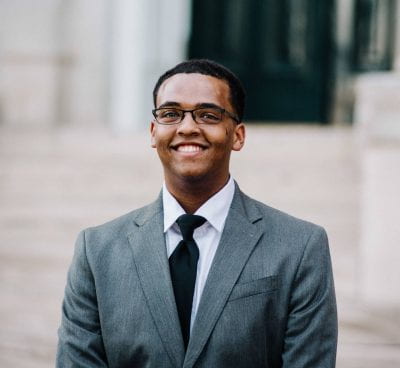2
Path Scholar Elijah Conley, a political science and journalism major from Melbourne, Arkansas, reached for a stretch goal and applied for the Congressional Black Caucus Foundation internship. He was one of 53 students selected and although he didn’t get to spend the summer in D.C., he soon found that screen time offered a front-row seat to history.
On Wednesday, July 22, 2020, separated by a computer screen, Congresswoman Karen Bass joined our internship closing ceremony zoom call minutes after she voted in support of removing Confederate statues from the United States Capitol. She said, “I walk into this building, a building built my ancestors, and I see statues of people who worked to keep my ancestors enslaved.” As I sat there listening to Congresswoman Bass after she voted on a historic piece of legislation, I felt empowered, encouraged and above all capable. She encouraged us to keep working and seeking justice and equality as she emphasized that we are the next generation of change makers.
Witnessing history being made from a computer screen, I felt a sense of urgency and a necessity to give back to my community. I sat there joined by 52 like-minded individuals, each with different backgrounds and experiences, but all united by the desire to be a part of something bigger than ourselves. As an African American male who is an aspiring public interest attorney, interning for the Congressional Black Caucus Foundation expanded my understanding of what it means to serve and advocate for my community on a local, state, and national level.
My freshman year an Honors College staff member recommended I apply for the internship. I was aware of the competitive nature of this program, so I decided to wait until I had gained more experience. During my sophomore year I applied to several local and state internships, and all the while this internship was still in the back of my mind. I went through the application and interview process for two internships before being told I did not get those positions. At this point I was feeling discouraged, and I began to accept the possibility I would not get any experience that summer like I had hoped. With nothing to lose, I decided to apply for the Congressional Black Caucus Foundation summer internship program. I spent hours on my application essays and received so much support and help from Jonathan Langley, Louise Hancox and John Treat. In early May, with the status of one of the last summer internships I had applied to unknown due to COVID-19, I received an email congratulating me on my acceptance into the Congressional Black Caucus Foundation summer internship cohort. When I read the subject line of the email, my heart started beating fast as I quickly skimmed the email locking my eyes on “Congratulations!”
I was unable to walk the halls of Congress, work for a member of Congress, or experience the summer in D.C., due to COVID-19, but that did not hinder the once-in-a lifetime experience the CBCF provided me with this summer. The virtual internship shifted to a public policy and professional development internship. I attended policy writing workshops as well as workshops on LinkedIn profiles, resumes, and how to dress professionally. I completed assignments ranging from writing a Congressional Records Statement to writing memos on virtual sessions I attended with speakers such as Senator Kamala Harris. I participated in a group project in which we wrote a piece of legislation amending H.R. 3355 [the Violent Crime Control and Law Enforcement Act]. I wrote a briefing memorandum on a Congressional hearing, and I gave a floor speech in support of improving student outcomes in higher education. I attended sessions with chiefs of staff, attorneys, congressional staffers, Angela Rye, Congresswoman Lauren Underwood, and Congresswoman Karen Bass. This internship introduced me to the different career opportunities on Capitol Hill, and it provided me with tangible experience that I can apply to future academic and professional endeavors.
To anyone considering the CBCF internship or any other competitive internship, I encourage you to always apply for those opportunities and to not doubt yourself. The application process alone challenged me to reflect on my involvement, passions and career aspirations. I had to be creative to find the intersectionality between those things in order to cultivate it into an application that really illustrated who I am outside of my academic achievements. For every no that you receive, there is a yes you have yet to receive.

